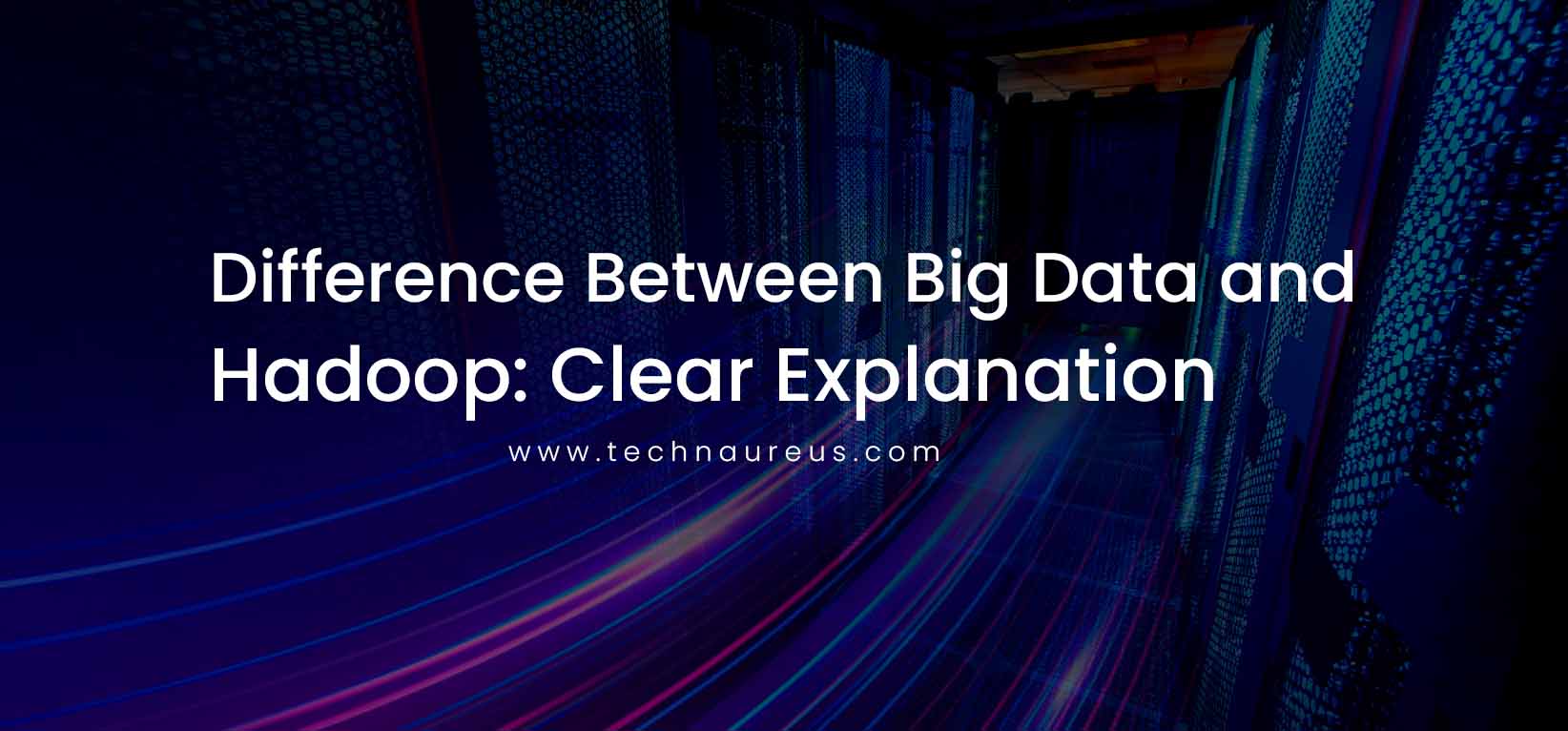JyothisJune 10, 2025
Big Data and Hadoop are often discussed together, but they are not the same. Big Data refers to massive, complex datasets, while Hadoop is a framework designed to process and store such data.
Understanding their differences is crucial for businesses and professionals working in data analytics, cloud computing, and IT infrastructure. This guide explains both concepts in detail and highlights their distinctions.
Big Data refers to extremely large and complex datasets that traditional data processing tools cannot handle efficiently. These datasets come from various sources like social media, IoT devices, and transaction records.
Big Data is characterized by the 3 Vs:
Additional Vs like Veracity (data accuracy) and Value (useful insights) are also considered.
Hadoop is an open-source framework developed by Apache to store and process Big Data across distributed computing clusters. It enables scalable, cost-effective solutions for handling large datasets.
Hadoop is widely used in industries like finance, healthcare, and e-commerce for data analytics and storage.
Big Data is the data itself, while Hadoop is a processing framework.
Big Data describes the challenge of managing large datasets, whereas Hadoop provides a solution for storage and processing.
Big Data can be managed using other tools like Spark or NoSQL databases, but Hadoop remains a popular choice due to its scalability.
Hadoop scales horizontally, making it ideal for Big Data applications.
Hadoop is open-source and cost-efficient compared to traditional databases.
Hadoop is a key enabler for Big Data analytics. Here’s how they complement each other:
Without Hadoop, managing Big Data would be slower and more expensive.
No, alternatives like Apache Spark, Flink, and NoSQL databases (MongoDB, Cassandra) also handle Big Data efficiently.
Yes, Big Data existed before Hadoop. However, Hadoop provides an efficient way to process it.
It enables distributed storage and faster parallel processing, making large-scale analytics feasible.
Finance, healthcare, retail, and telecommunications rely on Hadoop for data-driven decision-making.
Big Data and Hadoop are interconnected but serve different purposes. Big Data represents the challenge of managing vast datasets, while Hadoop provides a scalable solution for storage and processing.
Understanding their differences helps businesses choose the right tools for efficient data management. While Hadoop remains a leading framework, newer technologies like Spark are also gaining traction in Big Data analytics.
By leveraging the right tools, organizations can unlock valuable insights from their data, driving innovation and growth.

0